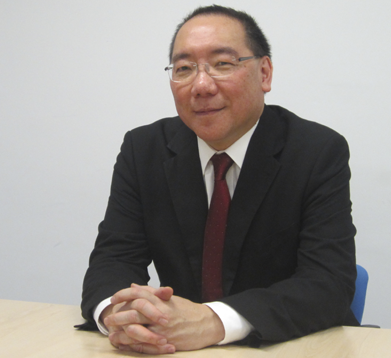Can innovation reduce health inequities?
Prof Sir Peng Khaw, Programme Chair for Eyes and Vision at UCLPartners and Consultant Ophthalmic Surgeon at Moorfields Eye Hospital, argues that healthcare innovation needs to be harnessed in the right way to reduce health inequities and address the rising demand for healthcare.
We know that demand for our health services is growing with our ageing population, and that more people are living with multiple long-term conditions. The use of technology – in particular, informatics and digital – is essential to helping address this increasing demand curve, by enabling better prevention, prediction and precision diagnostics.
As demand grows and resources get tighter, there is a tendency for inequity to increase – those who are hardest to reach tend to suffer the most. So how can we ensure that in developing the use of new technologies we do not increase the inequitable distribution of health?

At Moorfields Eye Hospital, we’ve been thinking about our role in serving our wider population in London, England and beyond. As a specialist hospital, we enjoy some privileges in our research capabilities, benefitting from the co-location of a wide range of patients with complex needs and a large and specialised group of clinical and academic experts, together with access to large data sets and the ability to attract big industry. But alongside this comes the risk that we deliver only for the few, predominantly for patients at the latter stages of complex disease.
A review of the potential and performance of specialist hospitals published earlier this year highlighted the potential for a wider role for specialist hospitals across the health system. Working as part of the UCLPartners academic health science partnership, there are ways we can contribute to the health of the wider population, through research and training but also through innovation.
Three areas of our ongoing research and development have potential to have a much wider reach and impact.
The first focuses on large-scale treatment and prevention using biological and engineering expertise: We are developing an advanced technique that can reduce eye pressure to under 10mmHg – a level that stops glaucoma in more than 95% of patients. The aim is to be able to perform this procedure in 10 minutes and to keep eye pressure below 10mmHg for 10 years: something we are calling the 10:10:10 challenge. It has the potential to revolutionize the treatment of glaucoma – the commonest cause of irreversible blindness in the world and one of the commonest neuropathies. Glaucoma will affect more than 110 million people worldwide within a few decades.
Second, we are working on improved health prediction through eye-scanning. A one-minute eye scan is the best predictor of future cognitive decline and an effective predictor of cardiovascular disease and a range of degenerative eye conditions, providing a wealth of opportunities for risk stratification across the population.
Third, we are further exploring how artificial intelligence (AI) can enable expertise at Moorfields to be used at other hospitals across the country. Our work with Google DeepMind developed AI technology that automatically detects more than 50 eye conditions with 94% accuracy in seconds, matching the accuracy of expert clinicians with over 20 years’ experience. This could drastically cut the time between detection and treatment and enable clinicians to prioritise patients in urgent need of care, making it less likely these conditions will lead to sight loss. It also opens up the possibility of other centres elsewhere in the country using AI to carry out diagnosis with the same speed and accuracy – without needing direct access to the specialist clinical expertise concentrated in Moorfields.
Through all of this work we aim to help drive solutions for the wider population that are needs-based, clinically led, data driven and academically tested. As we begin 2019, with resources ever more stretched and demand continuing to grow, a focus on using innovation to reduce health inequities and reach the wider population is essential.
Professor Sir Peng Khaw is Programme Chair for the Eyes and Vision Programme at UCLPartners. He is Consultant Ophthalmic Surgeon at Moorfields Eye Hospital NHS Foundation Trust and Professor of Glaucoma and Ocular Healing at the UCL Institute of Ophthalmology. He is also Director of the National Institute for Health Research (NIHR) Biomedical Research Centre in Ophthalmology at Moorfields Eye Hospital and UCL Institute of Ophthalmology and Director of Research and Development at Moorfields Eye Hospital.